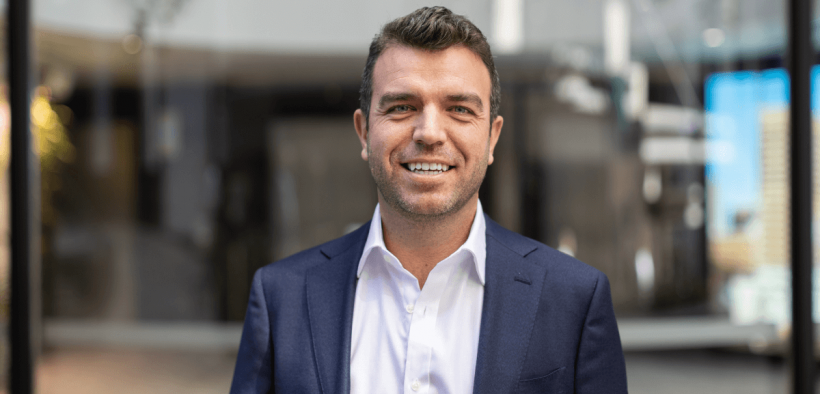Australian organisations should have the cheapest energy in the world – here’s how we can
Share

A few months back, an article was published with the sort of headline no country wants to read about itself: “Australia Power Crisis Forces Manufacturers to Eye Offshore Moves, Production Costs.” In it, the CEOs of Brickworks, LTD and Boral, Ltd admitted they would either have to cut back on production in their brick and construction businesses or pass on the costs to the consumers.
Almost one year later, the energy crisis continues to force Australia into deeper dilemmas within its political class and its foreign partners. Earlier this month, ConocoPhillips warned the Albanese government that its efforts to impose new rules on gas pricing on the east coast would create “considerable negative consequences” for the country.
From the left, the Greens Party asserted that they would only support legislation to reform the country’s safeguard mechanisms if the administration agreed to no new oil and gas projects.
Check out: Prime Minister says no quick solution to ongoing energy crisis
It really doesn’t have to be like this.
By all rights, Australia should have the cheapest energy in the world. Yet we’re currently number six in countries paying the most per kilowatt hour for electricity. This condition has been years in the making, rising up at an average of 12 per cent over the past decade throughout all of Australia through both conservative and liberal governments.
It’s not a partisan problem. It’s more like a confidence problem –we need to believe in ourselves. We are the most energy-rich country in the world. It’s time we started acting that way.
I work in renewables and recently we’ve been hearing a lot about what my team’s now dubbing the “energy recession.” Since energy is such a major input into so many businesses, unprecedented price volatility and truly staggering increases, think 400 per cent, creates tremendous pain, uncertainty and commercial consequences – and not only for energy-intensive companies like Boral and Brickworks.
The physical definition of energy is the ability to do work, and without it, work can’t continue, and when energy is constricted, so is growth. Energy should be an enabler for Australia, instead, it’s a blocker.
We’re seeing two different responses to this situation: businesses either take the defensive measures typical of recession thinking like slowing expansion, cutting costs, and laying off workers, or they lean into the problem and actively seek energy independence.
In our industry that means companies find ways to control their destinies through investment in renewable energy systems and innovative financing mechanisms that lower and level their costs giving them certainty and some breathing room in their bottom line.
In our space, this can be done because solar power is now cash positive. Companies can expect a three-to-four-year payback on the outright purchase of a 100kW system that will reduce its power consumption by 40 per cent. Innovative financing structures can make this even more attractive by delivering ‘pay as you go’ systems that require $0 to install and the power generated by the solar system is 50 per cent cheaper than buying it from the grid.
Even though I work in solar, I am under no illusion that solar alone will solve our energy crisis. In fact, the uncoordinated rollout of solar has led to what we’ve called a “solar cliff” that has led to very uneven market penetration that has had negative implications for energy market decisions.
In other words, while many individual businesses can attain energy independence using renewables, the wider market needs a comprehensive strategy driven by a united government and private sector response that explicitly preferences cheap energy for everyone as the goal.
What’s happening in the United States is exactly what we don’t want to happen here. Despite truly historic support for renewable energy, projects are now grinding to a halt. According to The New York Times, “The energy transition poised for takeoff in the United States amid record investment in wind, solar and other low-carbon technologies is facing a serious obstacle: The volume of projects has overwhelmed the nation’s antiquated systems to connect new sources of electricity to homes and businesses.”
Projects are now being delayed years and developers are walking away. We’re facing delays here too. The approval process for solar and wind projects has a backlog of over 200 grid-scale projects and AEMO ekes out about 10 approvals per year.
Check out: Australia’s energy stakeholders cooperate to stabilise power sources
We need to fix that but also do a whole lot more. Recently, there’s been noise around the Sun Cable struggle, the ambitious project to send renewable energy offshore. But what about a Sun Cable equivalent connecting our own isolated State markets and a concerted effort to overhaul our own antiquated systems to streamline energy generation, sharing and trading that will stabilise the market and drive prices down?
We need to fix an inefficient grid that is chilling more investment by throwing projected investor returns way off.
We can and must reimagine energy now for business, for consumers, for our kids – let’s turn the old narrative around that says energy always needs to be a problem, always needs to be expensive, always needs to be a crisis. It doesn’t.
With the proper mix of policy and domestic sources and an explicit goal of cheap energy, Australia’s untapped ability to work can be unleashed and we need never have an energy recession again.
Huon Hoogesteger is a solar pioneer who increased the standard of commercial solar and disrupted the traditional energy retail model with Power Purchase Agreements (PPAs).










Today’s Pick
11th Annual Aus Goverment Data Summit
April 1, 2025
7th Annual NZ Government Data Summit
May 7, 2025
3rd Public Sector Comms Week
May 14, 2025
Subscribe
We send emails,
but we do not spam
Join our mailing list to be on the front lines of healthcare , get exclusive content, and promos.
AI appointment Australia Australian boost boosts business businesses covid-19 cyber cyber attack cyber security cybersecurity data data breach data management defence Digital employment enhance enhances fraud funding governance government grants infrastructure Innovation Lockdown management new zealand NSW NZ online privacy public Public Sector queensland renewable energy scams security Social Media Technology telecommunications victoria
-

Understanding and building your digital strategy
Digital Government, Opinion
-

Featured Leader: Jamie Morse on multi-channel strategies for communication
Communications, Featured Leader
-

Featured Leader: Tegan Tembe of NSW Treasury on creating solid planning strategies and processes
Featured Leader
-

Wirraka Maya Health Service improves patient care with My Health Record
Learning
Show More-

Effects of ineffective communication in the workplace
Communications, Personal Development
-

7 ways you can enhance your personal development skills
News, Personal Development
-

5 advantages of working in the public sector
News, Personal Development, Professional Development
-

7 causes of communication issues in the workplace
Communications, News, Personal Development
Show MoreLast Viewed